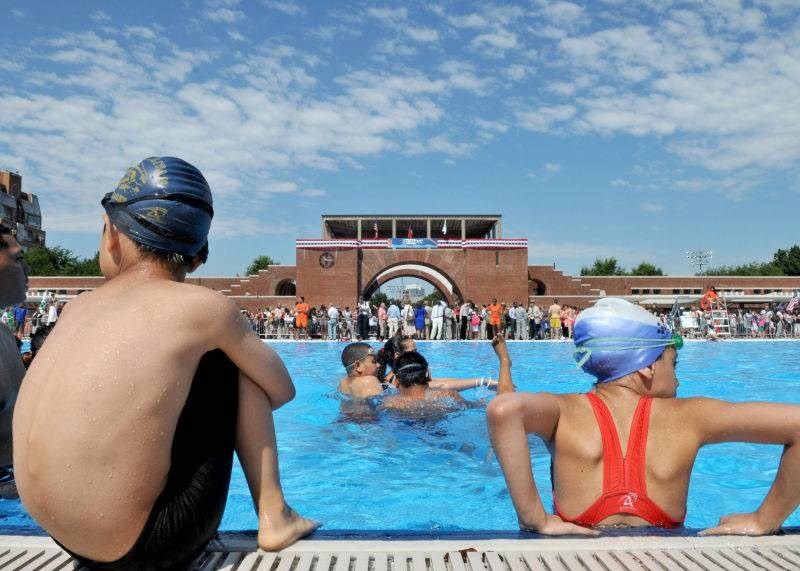Summer in Brooklyn is a time for fun and relaxation, but it's crucial to prioritize safety to make sure everyone enjoys the season without harm. As an Emergency Medicine physician, I've seen firsthand how preventable accidents can turn a fun-filled day into an avoidable medical emergency.
Here are some essential tips to ensure you and your loved ones stay safe this summer.
Drowning Prevention
With the lifeguard shortage continuing in New York, it's more important than ever to be vigilant around water. Drowning remains a significant risk, especially for children ages 5-14, where it's the second leading cause of unintentional injury death, according to the Centers for Disease Control.
Always supervise children closely around water, whether it's in a pool or at the beach. Teach children to swim early and ensure they wear appropriate flotation devices, if needed, and that they are the correct size.
Heat-Related Illnesses
Summer heat can lead to heat exhaustion and heatstroke, particularly in urban areas like Brooklyn where temperatures can soar. Stay hydrated by drinking plenty of water, especially if you're engaging in outdoor activities.
Wear lightweight, loose-fitting clothing and take breaks in the shade or air-conditioned spaces. Avoid strenuous activity outside especially during the sun’s peak hours between 11am and 4pm.
Watch for symptoms like muscle cramps, dizziness, nausea, lightheadedness, trouble breathing and rapid heartbeat, which can indicate a heat-related illness.
Fireworks and Sparkler Safety
Fireworks are synonymous with summer celebrations but can cause serious injuries if mishandled. According to the U.S. Consumer Product Safety Commission, thousands of people end up in the emergency room each year due to firework-related incidents. It's safest to leave fireworks to the professionals.
If you do use them, follow local laws and safety guidelines strictly. Sparklers, despite looking harmless, burn at temperatures over 2,000 degrees Fahrenheit and are responsible for a quarter of firework-related injuries, including severe burns.
Burn Prevention
Grilling is a favorite summer pastime but can lead to serious burns if not handled carefully. Clean your grill regularly to prevent flare-ups, and never leave it unattended while in use. Keep children and pets away from the grill area and have a fire extinguisher nearby in case of emergencies.
For minor burns, cool the affected area with water and seek medical attention if the burn is severe.
Remember to also use sunscreen when outside enjoying the warm weather and apply it to all areas of skin not covered by clothing. The American Academy of Dermatology recommends that everyone use sunscreen that offers at least SPF 30 protection, as well as protection against UVA and UVB rays.
Boating Safety
Boating accidents can turn a relaxing day on the water into a tragedy. Always wear a life jacket, as statistics show that a vast majority of drowning victims in boating accidents were not wearing one. Follow boating regulations, operate watercraft responsibly, and avoid alcohol consumption while boating, as it impairs judgment and reaction times. Check weather conditions before heading out and have emergency equipment onboard, including communication devices and first aid kits.
Shark Awareness
While shark attacks are exceedingly rare, they can still happen, particularly in the summer months when more people are swimming in coastal waters. In 2023, there were 36 unprovoked shark bites in the United States.
To minimize risk, swim in groups, avoid areas where sharks are known to feed (such as near fishing areas), and refrain from swimming at dawn or dusk when sharks are most active. Be mindful of ocean conditions and heed warnings from lifeguards.
By following these tips—whether you're swimming, grilling, boating or celebrating with fireworks—you can help prevent unnecessary accidents and emergencies. If an emergency does occur, don't hesitate to seek medical assistance promptly. Stay informed, stay cautious and have a safe and enjoyable summer.
Aaron Arredondo, MD, is associate chief of service of the Emergency Department at NYU Langone Hospital—Brooklyn and a clinical associate professor in the Ronald O. Perelman Department of Medicine at NYU Grossman School of Medicine.




